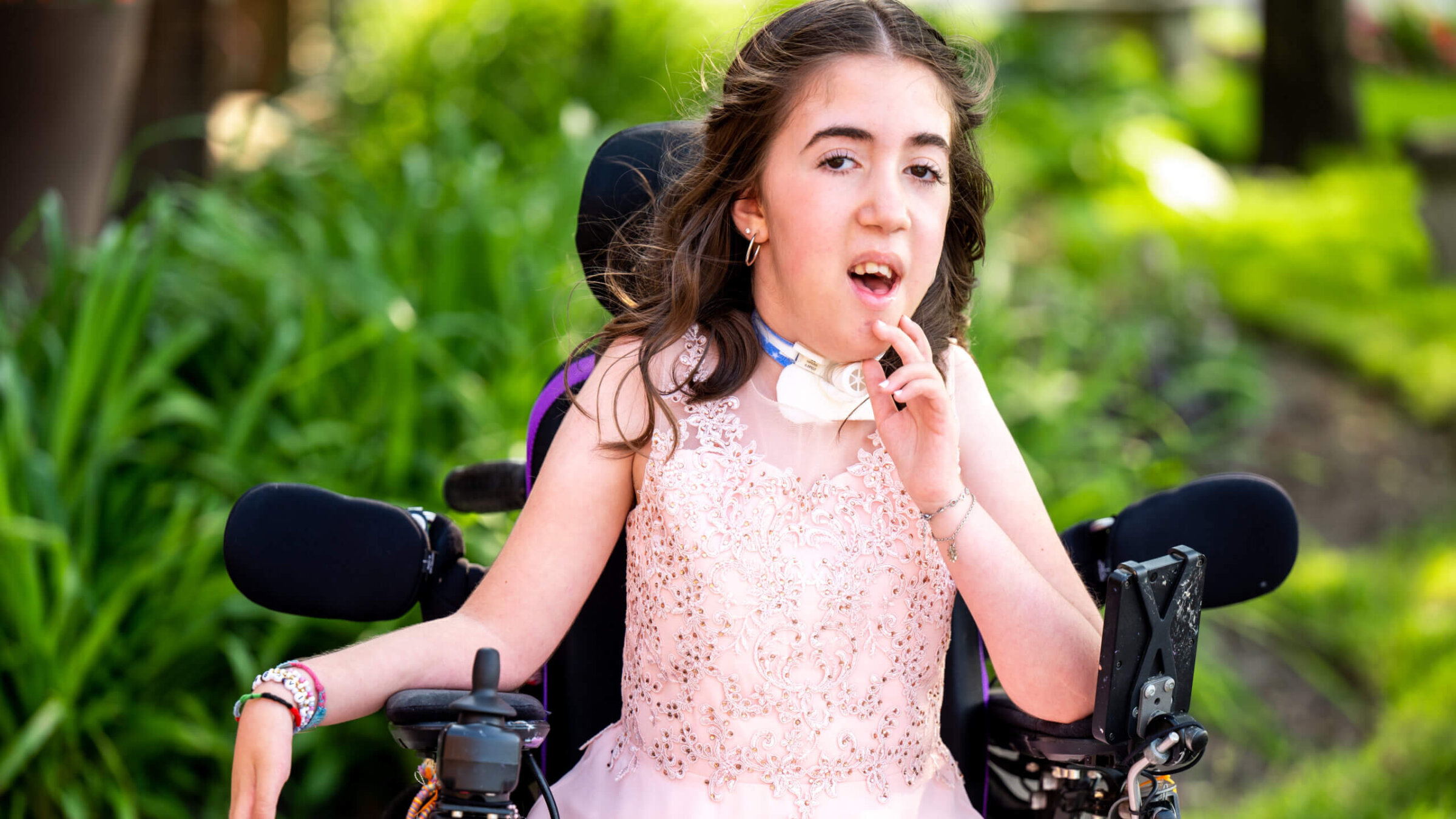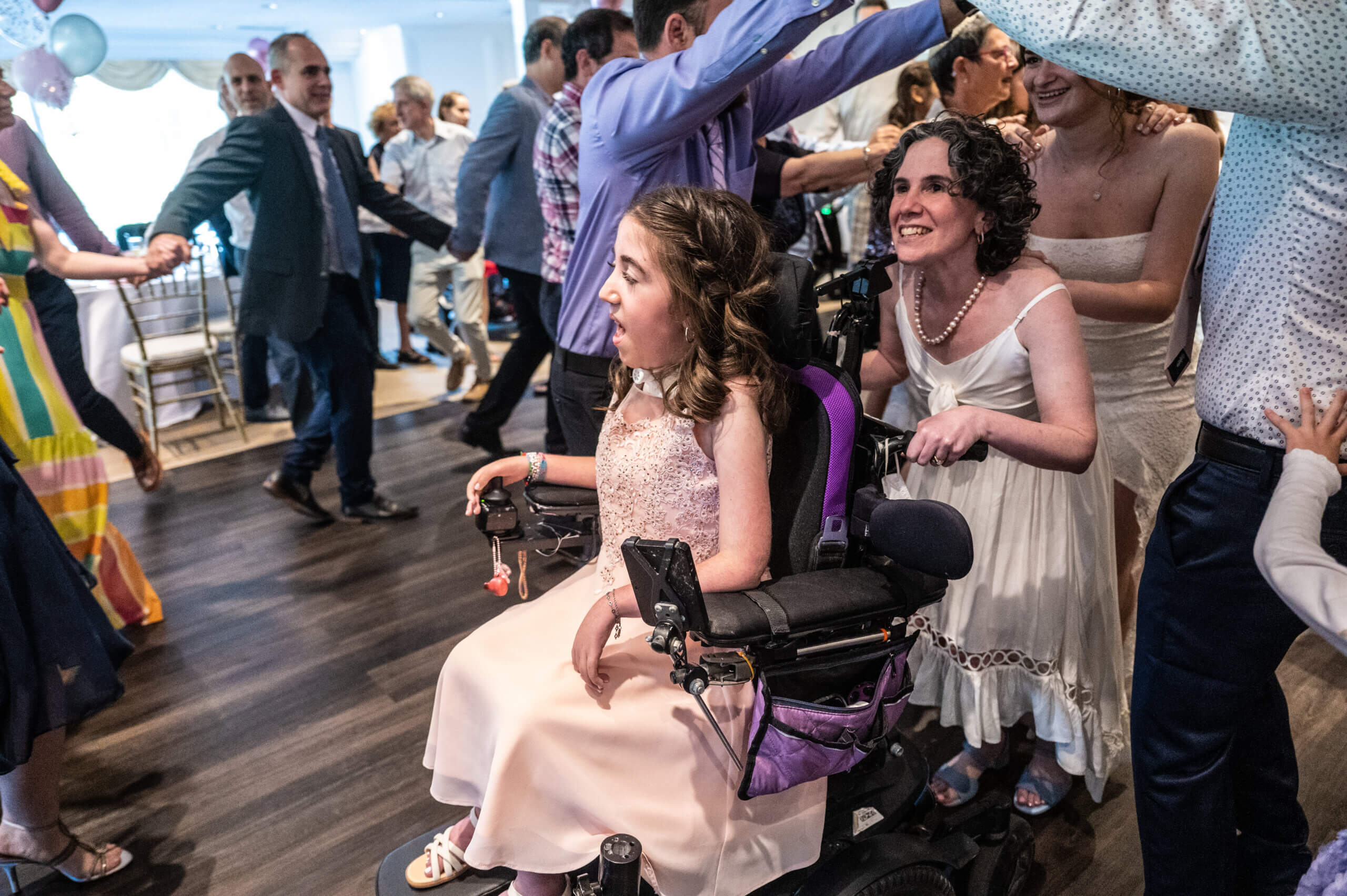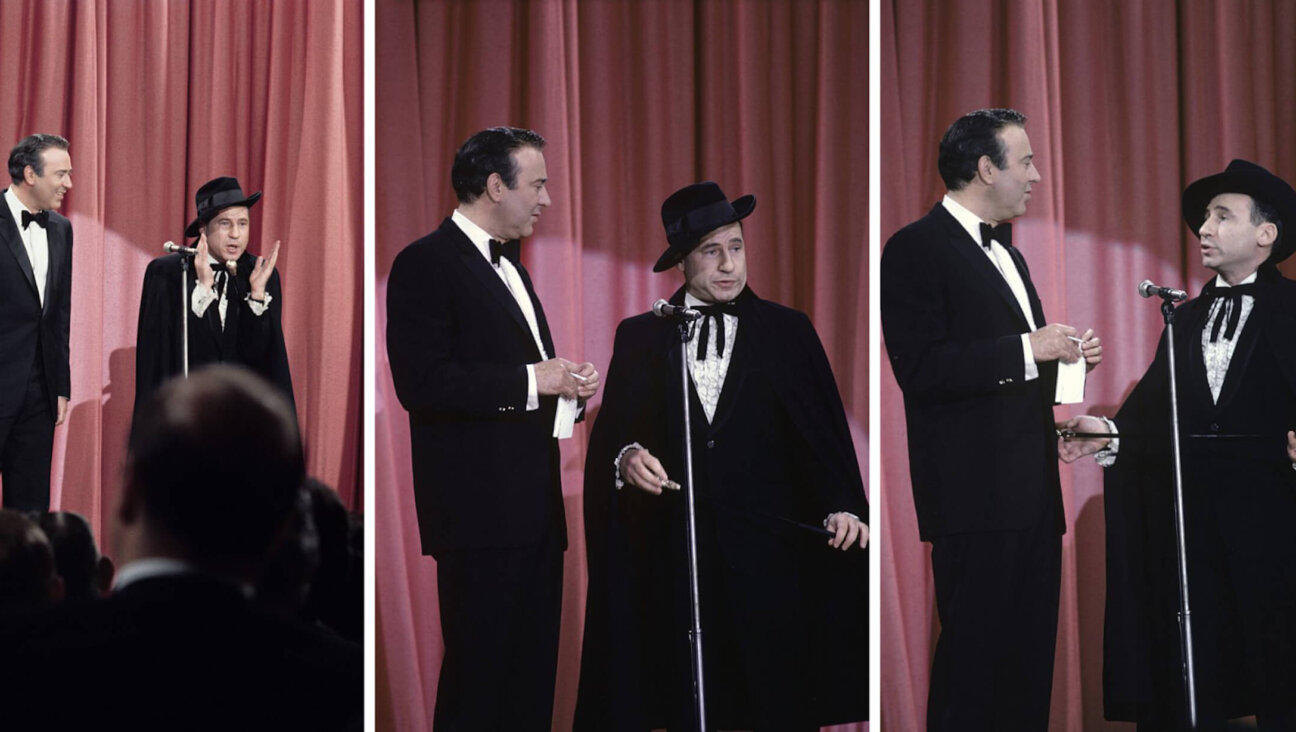Meet Gavi Engel-Yan, the 12-year-old who dedicated her bat mitzvah to Jewish accessibility
Engel-Yan’s bat mitzvah was a joyous occasion — and a call for change

Gavi Engel-Yan, 12, recently celebrated her bat mitzvah. Photo by Dahlia Katz
“Moses had a speech impairment just like me,” said Gavi Engel-Yan. “But in the Torah, there is not a sadness around Moses’ disability.”
“God is God, and God could have made Moses not speech impaired if he wanted to, but God didn’t feel bad for him.”
That message informed how Engel-Yan, a 12-year-old activist who was born with a rare neuromuscular condition called nemaline myopathy, approached a defining rite of her young life: her recent bat mitzvah, which she treated as an opportunity to urge her community toward a comprehensive reckoning with ableism.
Engel-Yan’s voice can be difficult to understand. But for her bat mitzvah ceremony at Toronto’s First Narayever Congregation, she approached the challenge of speaking in front of the congregation with creativity. She said the Shema in American Sign Language, which she learned from a Reconstructionist rabbi on the internet, and printed her d’var torah on physical placards on an easel, so the entire congregation could read along as she spoke.
The bat mitzvah was a triumphant moment for Engel-Yan. But it also highlighted just how high the barriers can be for disabled Jews who wish to participate in Jewish communal life.
Engel-Yan, who has been in a power wheelchair her whole life, could only have a bat mitzvah at her family’s synagogue because of a recent renovation to the building that allowed for the installation of an elevator, and the lowering of the bimah to make the Torah wheelchair-level.

When she was a young child, her parents brought her to Jewish services in their arms; “I remember loving going to shul,” she said in a video interview. But “as I grew, I became more uncomfortable sitting outside my chair” — making visits to synagogue, before the renovation, effectively impossible.
“Now, I can move around the shul happily,” she said.
‘She wasn’t afraid of people commenting and staring’
The day of Engel-Yan’s bat mitzvah was a joyous occasion. Her favorite part was delivering her d’var torah, but she also enjoyed the party, where guests performed “shtick” during the hora. Juggling and Hawaiian leis were involved.
“It was exciting,” she said. “A lot of people were there, jumping around me, and they did activities to make me laugh instead of raising me on a chair.”
But the process of preparing could be isolating. Engel-Yan’s bat mitzvah class was “a big social club, and I found it really hard to connect with people,” she said. “It’s hard for me to communicate because my voice isn’t clear … no one made that effort, so I felt alone and bored.”
That sense of exclusion echoed experiences Engel-Yan has had throughout her life.
“There’s not exactly a point where I realized I was different,” she said. “It’s like saying, ‘when did you realize you were alive?’”
The stories of disability rights activists have, over time, helped. Engel-Yan was particularly inspired by the late Judith Heumann — a Jewish disability activist who contracted polio as a baby and used a wheelchair for most of her life — whom she learned about through the acclaimed 2020 documentary Crip Camp.
And she’s connected with others living with nemaline myopathy who have helped her see broader opportunities with her own condition.
One of them, 27-year-old activist Rachel Gross, “made a Facebook post about wearing a bikini, and she has a g-tube just like me,” Engel-Yan said, referring to the gastronomy tube that allows her to bypass the need for swallowing, and helps to ensure she receives the nutrients she needs.
“She wasn’t afraid of people commenting and staring,” said Engel-Yan, “and it made me have the courage to wear a bikini.”
‘A smart-ass woman’
These role models have helped give Engel-Yan the strength to excel — not just as a student, friend and activist, but also as an accomplished competitive athlete. Gavi plays volt hockey, an adaptive parasport played from motorized wheelchairs with paddles attached.
“I am a very competitive person and I always wanted to play a sport,” she said. “I like the adrenaline rush when I am playing in a tournament.” Engel-Yan is the first female volt hockey player in Canada, and the only girl on her elite team, which won gold in the North American Tournament at the end of May. She is the youngest member of her team, and played against people aged 10 to 30 in the tournament.
But Engel-Yan wants to see change in how her accomplishments, and those of others living with disabilities, are portrayed.
She emphasized her disgust with what she called “inspiration porn,” a term coined by the late disabled activist Stella Young to describe how the disabled are fetishized by the able-bodied.
“One time I was in a restaurant with my family celebrating an occasion, and this old lady came up to me and told me that I was the prettiest girl in the restaurant,” Engel-Yan said. “You may think this is really nice, but really it’s patronizing and dehumanizing because she only said that because I have a disability.”
Engel-Yan has a long list of ideas for what synagogues can do to increase accessibility, starting with normalizing the employment of ASL interpreters in synagogue, and stocking copies of religious books in Braille. But she also aspires to have a more holistic impact, helping to shift the ways in which disabled people’s stories are conceptualized, and their lives understood.
And Engel-Yan is confident that she can. When I asked her if there was anything I should know about how she identifies, she told me that she is a “smart-ass woman.”
“To be clear, Gavi is not an inspiration just for existing,” Engel-Yan’s mother, Ali Engel-Yan said. “But she is an inspiration for everything she has done here.”






















